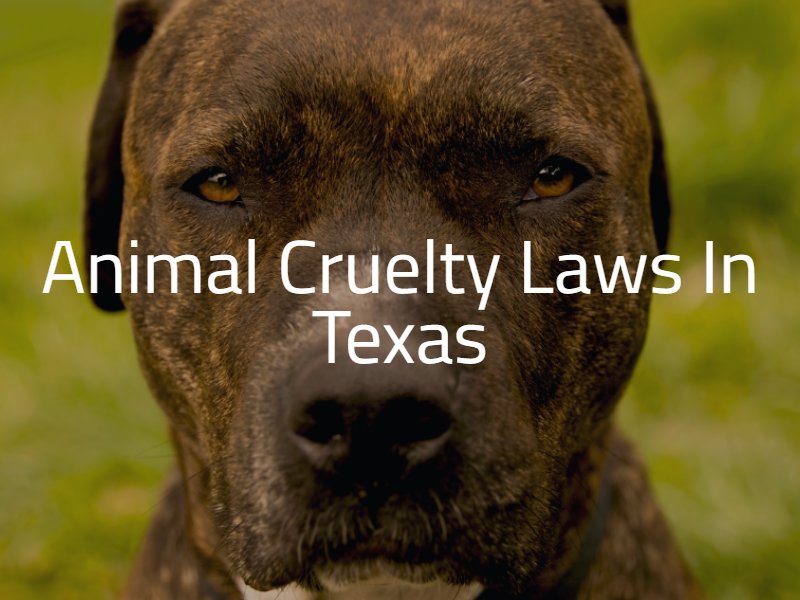
Animal cruelty laws exist to protect animals from neglect, abuse, and mistreatment, and each state has unique animal cruelty laws everyone should know. A new United States House Bill seeks to make animal cruelty a federal offense, and the bill apparently shows strong bipartisan support. In the meantime, Texas residents should know how the state handles civil and criminal animal cruelty offenses.
Texas handles animal cruelty laws depending on the type of animal involved. An animal cruelty case could potentially involve a domesticated animal like a dog or cat, a livestock animal such as a horse or pig, or wildlife of all kinds. However, Texas criminal statutes for animal cruelty generally only apply to cases involving domesticated or livestock animals. State-level civil statutes generally outline a much narrower set of guidelines for what constitutes animal cruelty against non-domesticated animals and wildlife, but civil statutes do not differentiate between domesticated animals and wild animals for the purposes of sentencing.
If a Texas judge rules that an individual has been cruel to animals that do not qualify as “domesticated” under state guidelines, that person may lose the right to own pets and may face fines or even jail time. Offenses involving domesticated animals in Texas are felonies subject to criminal prosecution, but civil cases for animal cruelty may arise from several possible causes:
The definition for a civil animal cruelty offense is much broader, so it is possible for an individual to face civil charges for an offense that would otherwise not qualify for criminal charges. However, due to the sweeping definition of criminal animal cruelty in Texas, most animal cruelty cases involve criminal charges.
As of September 1, 2001, the passing of House Bill 653 and Senate Bill 1724, also known as “Loco’s Law”, established intentional cruelty to animals is a felony offense in Texas. Domesticated animals include both pets and livestock, or any other animal under the care and control of a person.
Under Texas law, it is possible for an individual to face criminal animal cruelty charges for a direct action such as physical abuse or torture, or failure to act, such as failing to provide adequate food, water, and shelter to a domesticated animal. Texas is unlike other states in that criminal charges do not pertain to wild animals like deer, rabbits, pigeons, or feral cats.
Actions like cruel or unsafe transportation of an animal, injuring another person’s domesticated animal, failing to provide adequate food and water to an animal, or overworking an animal, the offender could face a Class A misdemeanor charge entailing a fine up to $4,000 and up to one year in jail. A third conviction of this nature would qualify as a felony, punishable by 180 days to two years in prison and fines up to $10,000.
A first conviction for a more serious offense such as intentionally torturing, injuring, or killing a protected animal will likely result in felony-level punishments. Three convictions of this nature would lead to a third-degree felony sentence of two to ten years in jail and fines up to $10,000.